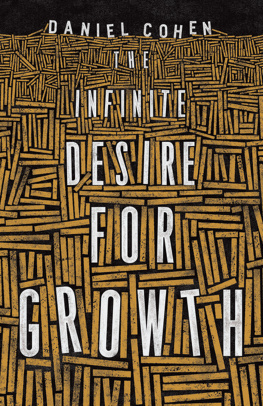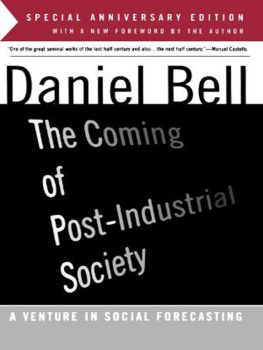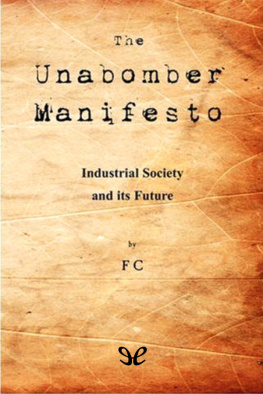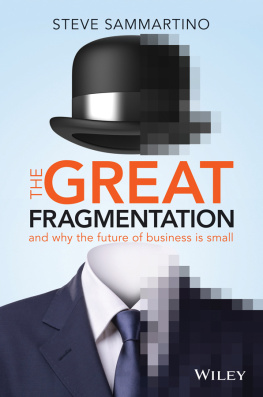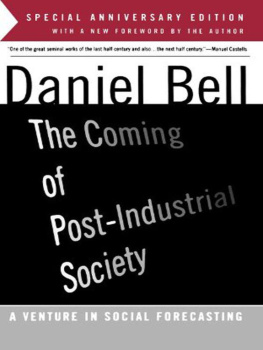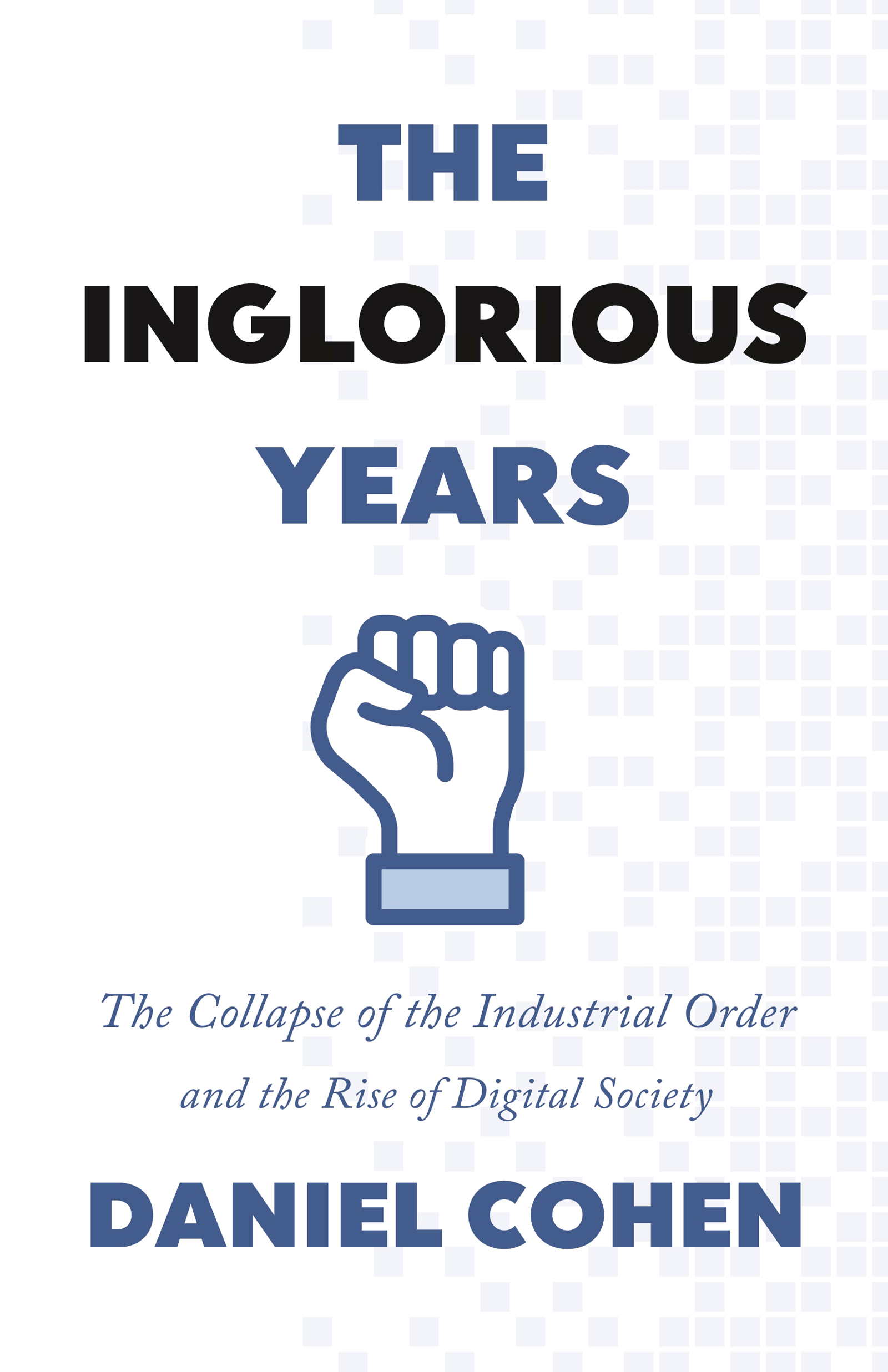THE INGLORIOUS YEARS
The Inglorious Years
THE COLLAPSE OF THE INDUSTRIAL ORDER AND THE RISE OF DIGITAL SOCIETY

Daniel Cohen
Translated by Jane Marie Todd
PRINCETON UNIVERSITY PRESS
PRINCETON&OXFORD
English translation copyright 2021 by Princeton University Press
Princeton University Press is committed to the protection of copyright and the intellectual property our authors entrust to us. Copyright promotes the progress and integrity of knowledge. Thank you for supporting free speech and the global exchange of ideas by purchasing an authorized edition of this book. If you wish to reproduce or distribute any part of it in any form, please obtain permission.
Requests for permission to reproduce material from this work should be sent to
Published by Princeton University Press
41 William Street, Princeton, New Jersey 08540
6 Oxford Street, Woodstock, Oxfordshire OX20 1TR
press.princeton.edu
All Rights Reserved
Originally published as Il faut dire que les temps ont change: Chronique (fivreuse) dune mutation qui inquite
Editions Albin MichelParis 2018
Library of Congress Cataloging-in-Publication Data
Names: Cohen, Daniel, 1953author. | Todd, Jane Marie, 1957translator.
Title: The inglorious years : the collapse of the industrial order and the rise of digital society / Daniel Cohen ; translated by Jane Marie Todd.
Other titles: Il faut dire que les temps ont chang. English.
Description: Princeton : Princeton University Press, [2021] | Originally published as Il faut dire que les temps ont change: Chronique (fivreuse) dune mutation qui inquite Editions Albin Michel-Paris 2018. | Includes bibliographical references and index.
Identifiers: LCCN 2020052903 (print) | LCCN 2020052904 (ebook) | ISBN 9780691206158 (hardback) | ISBN 9780691222264 (ebook)
Subjects: LCSH: Social changeHistory21st century. | Social changeHistory20th century. | Information society.
Classification: LCC HM831 .C54413 2021 (print) | LCC HM831 (ebook) | DDC 303.48/33dc23
LC record available at https://lccn.loc.gov/2020052903
LC ebook record available at https://lccn.loc.gov/2020052904
Version 1.0
British Library Cataloging-in-Publication Data is available
Editorial: Hannah Paul and Josh Drake
Production Editorial: Karen Carter
Jacket/Cover Design: Michel Vrana
Production: Erin Suydam
Publicity: James Schneider and Kate Farquhar-Thomson
Jacket/Cover Credit: iStock
The translation of this book has been aided by Centre National du Livre
In Memory of Philippe
It must be said that times have changed
Its every man for himself nowadays.
DIANE TELL, IF I WERE A MAN
Time was not passing, it was turning in a circle.
GABRIEL GARCA MRQUEZ,
A HUNDRED YEARS OF SOLITUDE
PREFACE TO THE ENGLISH EDITION
IN THIS BOOK, I describe the transformation of economic structures and political thinking that has swept the world over the last fifty years, from the sixties to the present. The collapse of the old industrial society in favor of a digital society still in the making forms the heart of this account. By tragic coincidence, as the English language edition of this book was being prepared, the world was battered by a crisis unique in recent history, a pandemic, COVID-19. In a totally unpredictable manner, it served as a catalyst for a burgeoning of digital society, whose underlying logic, unexpectedly, it allows us to understand.
Because of the virus, society has suddenly become fearful of face-to-face contact. All of us are trying to protect ourselves from the risk of infection others may be carrying. Restaurants, cafs, and concert hallsessential sites where urban civilization can flourishwere closed. Life withdrew to the family cell, and the burden of stress and frustration followed. During the lockdown, every possible step was taken to allow people to work online easily, to purchase goods without having to physically enter a store, to entertain themselves without venturing out to a theater or concert hall. As it happens, the key feature of what can be called digital capitalism is precisely to reduce physical interactions, to dispense with the need for people to meet face-to-face. Under the assault of the health crisis, fine-tuning digital capitalism has come into the spotlight: increasing its efficiency by dispensing with the need to meet in person. Many activities have been rendered virtual. In medicine, for example, many consultations are now conducted remotely. The big winners in the crisis were Amazon, Apple, and Netflix, whose control of the market exploded during the lockdown. The virus arrived at just the right time for the dominant players in digital industries, who were able to conduct a full-scale experiment on the virtual worlds assimilation of the physical world.
Back in 1948, the French economist Jean Fourasti published an analysis of long-term economic transformations which provides us with an essential key for understanding the change under way. Growth is necessarily kept in check when one has to meet in person, whether to examine the bodies of patients or attend a play. And the essence of capitalism, always and everywhere, is to seek the systematic reduction of costs. It took a long time to find the solution to Baumol and Fourastis problem, but it is now clear: One has only to convert the humans we are, beings of flesh and spirit, into data sets, bits of information about our temperatures or our desires, so that we may become part of the Web, where we can be managed by algorithms. Freed from the imperative of encounters in the flesh, growth once again becomes possibleonline.
During the spring of 2020, Paris, New York, London, and Milan stopped working. Health concerns became imperative, and was compared ironically by some to May 68, when the economy also suddenly came to a halt in opposition to the assembly-line work and mindlessness of industrial society. The comparison between the COVID-19 pandemic and the sixties is obviously comical. Back then, people threw themselves into the feverish pleasure of political demonstrations. Presently, COVID has us at home in lockdown, in a kind of internal exile. With the digitization of the world, the great hope that society would have finally been humanized is receding into the distance. In a strange inversion of May 68 values, it has been those on the rightsupporters of Trumpwho have waged the war against the lockdown in the name of freedom. The fact that a large number of societys loudest forces now bend towards the radical right is telling of the U-turn that our societies are engaged in. Yet the criticisms voiced by the young hippies in California and the leftists in Paris have also found echoes in present-day society, be it with radical groups such as Extinction Rebellion in the name of ecology or Black Lives Matter in favor of civil rights. The polarization of politics, the criticism of the contemporary world, are becoming as sharp as they were in the sixties, when they were directed against industrial society. History is coming full circle.
ACKNOWLEDGMENTS
ALL MY THANKS to guillaume Erner and Francis Wolff for their kind and indulgent reading of the manuscript; to Alexandre Wickham, faithful friend and editor, lifelong accomplice; to Richard Ducousset for his constant support of this project; and to Marie-Pierre Coste-Billon and her staff for their wonderful work on the text. I am also extremely thankful to Sara Caro for her early endorsement and to Hanna Paul for her thorough support of this adaptation of the French edition. Many thanks to Jane Mary Todd for her splendid translation and to Pamela Marquez for her final touches on the manuscript.



